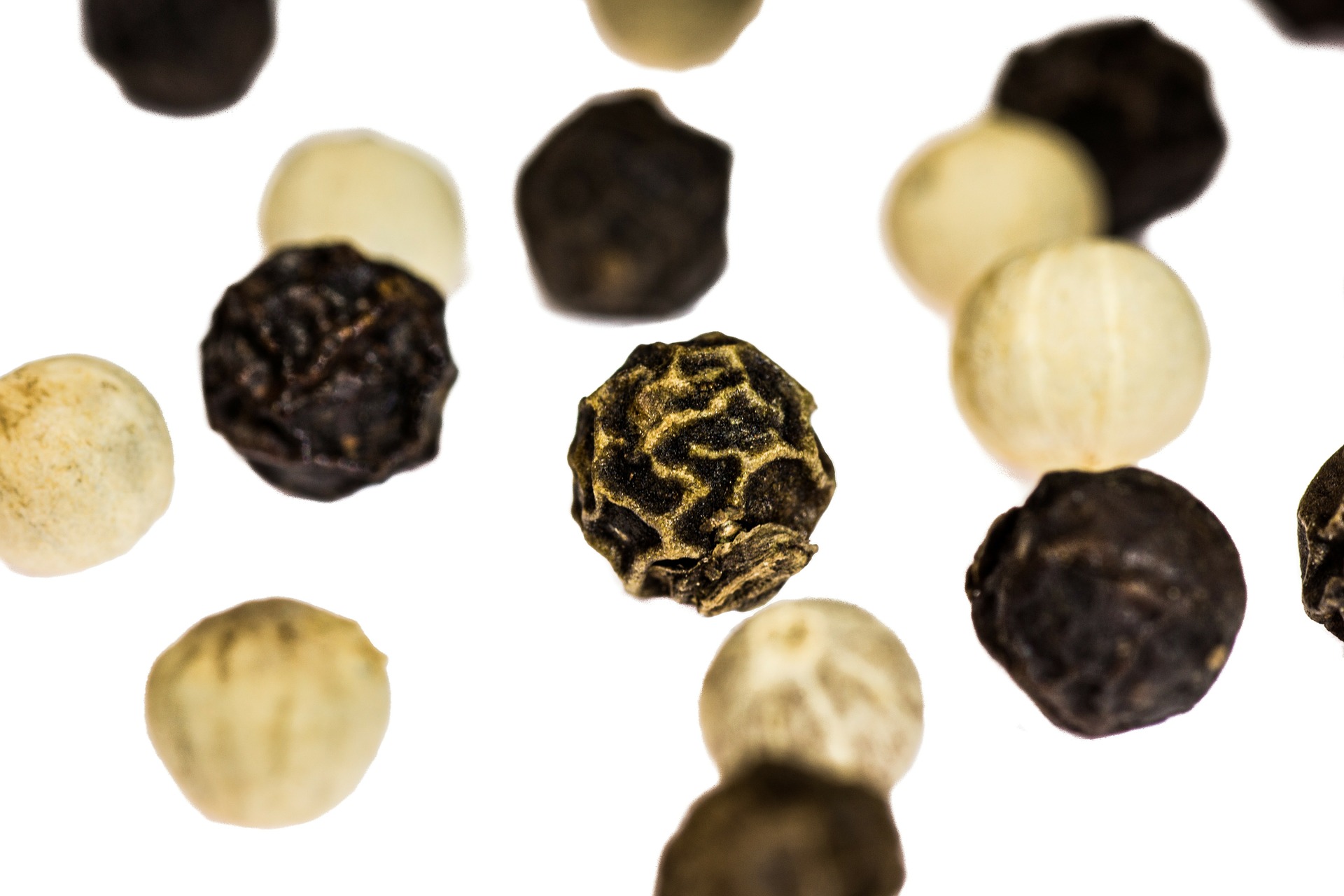Who uses white pepper? I’ve only used it once.
Let’s find out the difference between black pepper and white pepper.
Like black pepper, white pepper derives from the peppercorn, a fruit of the pepper plant vine. They both have an earthy taste to them. And, they both lose flavor after they’ve been ground up, particularly white pepper.
Here’s the breakdown.
Black peppercorns:
- Are picked when almost ripe, then dried.
- Are green when picked, then turn black as they dry.
- Have a strong, almost spicy flavor.
- Black pepper is the most widely used spice in the world.
White peppercorns:
- Ripen fully before being picked.
- Are red when picked, then soaked in water, then skinned; the white colored seed is left.
- Oddly, are hotter than black, but less complex in flavor.
- Are often used over black for aesthetic reasons, to avoid black flecks in a dish.
- Are often used in specific cuisines, such as Asian or Indian.
- White pepper has a stronger smell than black pepper.
- If found in peppercorn form (not yet ground), they tend to be very expensive.
Interestingly, it is not clear whether you can you substitute one for another in the recipes. Generally, I would believe that you can – if cooks use white pepper in place of black pepper in dishes just so the final product looks prettier, than surely they are interchangeable, right?
And yet, there are dishes that call for both black and white pepper.
More importantly, my Food Substitutions Bible, which I live by, does not list white pepper as a possible substitute for black.
Despite the aforementioned information, I do think it’s most likely safe to substitute one for the other in recipes.
White pepper seems to be an ingredient that chefs either love or hate.
Reportedly, Jacques Pepin always disagreed with Julia Child on their show, Julia and Jacques: Cooking at Home. Julia used it for the aesthetic purposes, and Jacques refused to use it all.
I personally think black flecks often compliment and bring out a dish. But, it’s good to know there’s a backup white pepper if a recipe calls for it.
